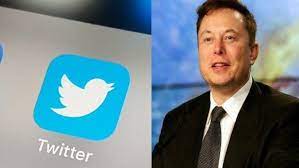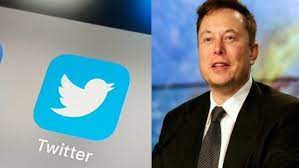
Elon Musk, Tesla's CEO and the world's richest person, announced on Friday that he was cancelling his $44 billion proposal to buy Twitter because the social media business violated multiple clauses of the merger agreement.
Bret Taylor, Twitter's chairman, stated on the microblogging platform that the board intended to take legal action to enforce the merger deal.
"The Twitter Board is committed to closing the transaction on the price and terms agreed upon with Mr. Musk...," he wrote.
Musk's lawyers stated in a document that Twitter failed or refused to reply to several requests for information on fraudulent or spam accounts on the network, which is critical to the company's commercial performance.
"Twitter is in material breach of multiple provisions of that Agreement, appears to have made false and misleading representations upon which Mr. Musk relied when entering into the Merger Agreement," the filing said.
Musk also stated that he was leaving because Twitter fired high-ranking executives and one-third of the talent acquisition team, in violation of Twitter's responsibility to "maintain substantially intact the material components of its current business organisation."
Musk's decision is likely to spark a protracted legal battle between the billionaire and the San Francisco-based firm, which is 16 years old.
Rather than a judge directing that a transaction be completed, disputed mergers and acquisitions in Delaware courts usually result in the corporations renegotiating arrangements or the acquirer paying the target a settlement to walk away. This is due to the fact that target organisations are frequently eager to resolve the uncertainty around their future and move forward.
According to a person familiar with the situation, Twitter is hoping that court procedures will begin in a few weeks and be finished in a few months.
There is plenty of precedent for renegotiating a contract. When the COVID-19 pandemic broke out in 2020, causing a global economic shock, several firms repriced agreed-upon acquisitions.
In one case, French retailer LVMH threatened to cancel an agreement with Tiffany & Co. The jewellery retailer in the United States agreed to reduce the acquisition price by $425 million to $15.8 billion.
"I'd say Twitter is well-positioned legally to argue that it provided him with all the necessary information and this is a pretext to looking for any excuse to get out of the deal," said Ann Lipton, associate dean for faculty research at Tulane Law School.
Twitter shares were down 6% in extended trade, closing at $34.58. This is 36% less than the $54.20 per share Musk agreed to pay for Twitter in April.
Twitter's stock rose when Musk bought a stake in the firm in early April, insulating it from a stock market sell-off that hit other social media companies.
However, after agreeing to buy Twitter on April 25, the price began to decline within days as investors feared Musk may back out of the deal. Twitter was trading at its lowest level since March after the bell on Friday.
The news is the latest twist in Musk's will-he-won't-he story, which began in April when Musk agreed to buy Twitter but then put the acquisition on hold until the social media company demonstrated that spam bots account for less than 5 per cent of its total users.
The contract requires Musk to pay Twitter a $1 billion break-up fee if he is unable to complete the transaction due to factors such as acquisition finance falling through or regulatory obstacles. The break-up fee, however, would not apply if Musk terminated the agreement on his own.
On Friday, some staff expressed shock and exhaustion by openly sharing memes on Twitter, such as a rollercoaster ride and a kid wailing into a phone, in apparent response to the split.
Employees are concerned about what the transaction will mean for their jobs, income, and ability to work remotely, and many are sceptical of Musk's plans to relax content regulation.
Musk's withdrawal from the merger, combined with Twitter's commitment to fight hard to finish it, casts a veil of uncertainty over the company's future and stock price at a time when concerns about rising interest rates and a potential recession have rocked Wall Street.
Alphabet, Meta Platforms, Snap, and Pinterest's shares have dropped 45 per cent on average in 2022, but Twitter's stock has down only 15 per cent in same time, boosted in recent months by the Musk transaction.
Wedbush analyst Daniel Ives said Musk's filing was bad news for Twitter.
"This is a disaster scenario for Twitter and its Board as now the company will battle Musk in an elongated court battle to recoup the deal and/or the breakup fee of $1 billion at a minimum," he wrote in a note to clients.
(Source:www.livemint.com)
Bret Taylor, Twitter's chairman, stated on the microblogging platform that the board intended to take legal action to enforce the merger deal.
"The Twitter Board is committed to closing the transaction on the price and terms agreed upon with Mr. Musk...," he wrote.
Musk's lawyers stated in a document that Twitter failed or refused to reply to several requests for information on fraudulent or spam accounts on the network, which is critical to the company's commercial performance.
"Twitter is in material breach of multiple provisions of that Agreement, appears to have made false and misleading representations upon which Mr. Musk relied when entering into the Merger Agreement," the filing said.
Musk also stated that he was leaving because Twitter fired high-ranking executives and one-third of the talent acquisition team, in violation of Twitter's responsibility to "maintain substantially intact the material components of its current business organisation."
Musk's decision is likely to spark a protracted legal battle between the billionaire and the San Francisco-based firm, which is 16 years old.
Rather than a judge directing that a transaction be completed, disputed mergers and acquisitions in Delaware courts usually result in the corporations renegotiating arrangements or the acquirer paying the target a settlement to walk away. This is due to the fact that target organisations are frequently eager to resolve the uncertainty around their future and move forward.
According to a person familiar with the situation, Twitter is hoping that court procedures will begin in a few weeks and be finished in a few months.
There is plenty of precedent for renegotiating a contract. When the COVID-19 pandemic broke out in 2020, causing a global economic shock, several firms repriced agreed-upon acquisitions.
In one case, French retailer LVMH threatened to cancel an agreement with Tiffany & Co. The jewellery retailer in the United States agreed to reduce the acquisition price by $425 million to $15.8 billion.
"I'd say Twitter is well-positioned legally to argue that it provided him with all the necessary information and this is a pretext to looking for any excuse to get out of the deal," said Ann Lipton, associate dean for faculty research at Tulane Law School.
Twitter shares were down 6% in extended trade, closing at $34.58. This is 36% less than the $54.20 per share Musk agreed to pay for Twitter in April.
Twitter's stock rose when Musk bought a stake in the firm in early April, insulating it from a stock market sell-off that hit other social media companies.
However, after agreeing to buy Twitter on April 25, the price began to decline within days as investors feared Musk may back out of the deal. Twitter was trading at its lowest level since March after the bell on Friday.
The news is the latest twist in Musk's will-he-won't-he story, which began in April when Musk agreed to buy Twitter but then put the acquisition on hold until the social media company demonstrated that spam bots account for less than 5 per cent of its total users.
The contract requires Musk to pay Twitter a $1 billion break-up fee if he is unable to complete the transaction due to factors such as acquisition finance falling through or regulatory obstacles. The break-up fee, however, would not apply if Musk terminated the agreement on his own.
On Friday, some staff expressed shock and exhaustion by openly sharing memes on Twitter, such as a rollercoaster ride and a kid wailing into a phone, in apparent response to the split.
Employees are concerned about what the transaction will mean for their jobs, income, and ability to work remotely, and many are sceptical of Musk's plans to relax content regulation.
Musk's withdrawal from the merger, combined with Twitter's commitment to fight hard to finish it, casts a veil of uncertainty over the company's future and stock price at a time when concerns about rising interest rates and a potential recession have rocked Wall Street.
Alphabet, Meta Platforms, Snap, and Pinterest's shares have dropped 45 per cent on average in 2022, but Twitter's stock has down only 15 per cent in same time, boosted in recent months by the Musk transaction.
Wedbush analyst Daniel Ives said Musk's filing was bad news for Twitter.
"This is a disaster scenario for Twitter and its Board as now the company will battle Musk in an elongated court battle to recoup the deal and/or the breakup fee of $1 billion at a minimum," he wrote in a note to clients.
(Source:www.livemint.com)














